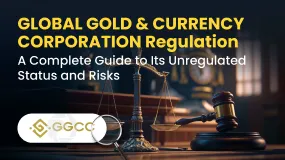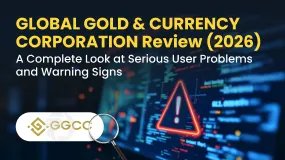Abstract:You don't have to be a daily trader to take advantage of the forex market—every time you travel overseas and exchange your money into a foreign currency, you are participating in the foreign exchange, or forex, market. In fact, the forex market is the quiet giant of finance, dwarfing all other capital markets in its world.

You don't have to be a daily trader to take advantage of the forex market—every time you travel overseas and exchange your money into a foreign currency, you are participating in the foreign exchange, or forex, market. In fact, the forex market is the quiet giant of finance, dwarfing all other capital markets in its world.
Despite this market‘s overwhelming size, when it comes to trading currencies, and navigating it for the first time is like driving through uncharted territor, the concepts are simple. Let’s take a look at some of the basic concepts that all forex investors need to understand.
The Forex Majors
In the foreign exchange market, investors trade currencies instead of stock or commodities. Since the options are more limited, the market revolves around several currencies, also known as major economies or “the Majors.” The most important ones are the US dollar and the Euro, both involved in most trades.
The other 6 important forex Majors are:
• Japanese Yen
• UK Pound Sterling
• Swiss Franc
• Canadian Dollar
• Australian Dollar
• New Zealand Dollar
Currency Pairs
Currencies are traded in pairs.The first listed currency of a currency pair is called the base currency, and the second currency is called the quote currency. But Why currencies are always in pairs? Well, the values of different currencies depend on one another. A decimal number expresses this relation. So, for instance, if the EUR/USD pair is 1.4400, you need to pay $1,44 to buy €1.
Traders try to predict how the relationship between currencies changes. If they think that the US economy will perform better than the European economy, they can decide to buy more dollars with the euro, and vice versa.
Alternatively, you can exchange currencies with a trader for a set amount in the future. If one of the currencies has a larger value in the future, one of the traders will earn a profit. This is known as a currency futures contract.
Carry Trading
One of the most popular investments in the financial markets today is the carry trade apart from betting on currency value, you can also make transactions based on currency interest rates. This forex strategy is known as carry trading. How does it work? Well, the fact is that every currency has a different interest rate. The number is set by the currencys central bank, and it depends on multiple complex factors.
With carry trade, Traders can borrow a currency with a lower interest rate (low-yield) and use it to purchase a currency with a higher rate (high-yield). In the end, they will make a profit out of the interest rate difference.
For Example, if currency A has a 1% interest rate and currency B has a 7% interest rate, a trader will use currency A to purchase currency B and earn a 6% interest profit.
Leverage
Another key concept in forex trading is leverage. Simply put, this is the money you borrow from a broker to enter a transaction. Its also present in other trading markets; however, forex is known for its high leverages.
Essentially, in forex, you can control a large amount of money with a small initial margin. For instance, in some situations, you can deposit only 1% of the total value. So, if $200,000 are in play, you can reach the sum with only $2,000. Even though it sounds appealing, the high forex leverages can also cause a lot of harm, if they are not handled properly.
Liquidity & Volatility
Volatility is technically the spread away from a standard position or median. Liquidity is a term that references the activity in a certain market. When there is a large number of transactions per day, the market is more liquid. Since forex is open 24 hours a day, Monday to Friday, and has a high daily turnover, it is considered the most liquid financial market.
At first, this sounds like a good thing. However, this concept is connected to market volatility. Volatility represents how dramatically market prices can change. A higher liquidity market has higher volatility. Thats why forex traders should be extremely careful with their trading moves.








